Jews the world over are counting down the hours before the start of Passover.
Chabad centers are opening their doors to locals and travelers alike in nearly 85 countries, with seders being held in some 600 cities that span the globe. Over the course of the holiday, they will also be providing holiday meals for Jewish individuals and families both near and far from home.
Rabbi Levi Klein of Chabad Lubavitch of Tennessee says that more than half of the people registered for the community seder at the Chabad Center for Jewish Life in Memphis—the first night of the eight-day holiday begins on Friday—aren’t even from Memphis. “Chabad has become the address to go to,” he says. “People know that when it comes to the seders, they turn to Chabad.”
As part of the service, he incorporates ice-breakers, anecdotes and teasers with an eye towards keeping everyone interested as the traditional seder moves along: “It’s a way to keep the child—and the child within each of us—excited about the Passover story.”
Klein has also been working with area prisons to help finalize seders for Jewish inmates. He visits prisoners during the year for Jewish learning and other matters, but some people just come out of the woodwork now. “We arrange for them to be able to eat together in the chapel on the nights of the seder, and we provide Haggadahs and seder plates,” he says. “We give them the tools so they can run their seder.”
The message is not just about celebrating an event that happened many, many years ago, but about people liberating themselves from what’s holding them back and fulfilling their potential, he explains. “The question is: ‘How do you celebrate freedom in prison?’ It’s not freedom to do whatever you want; it’s really freedom to be able to fulfill your potential with whatever circumstances G‑d has put before you.”
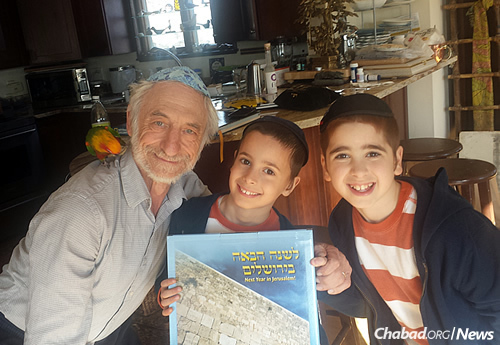
Customs From Home
Rabbi Shlomo Elkan, co-director of the Chabad at Oberlin College in Ohio with his wife, Devorah, are expecting to have their biggest seder to date Friday night, with around 150 students. They offer seders for those staying at school, as well as a full meal plan throughout the week—bringing in a palate of meat from New York and more than 50 pounds of shmurah matzah—with lunch on campus and dinner at the Chabad House.
“Our student board puts together a volunteer Google doc for students to sign up for—when they can help cook and peel, and set up for the seder,” says the rabbi. Two rabbinical students from New York are also on their way to participate in the seders.
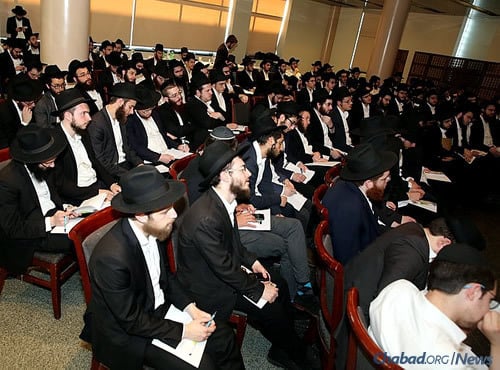
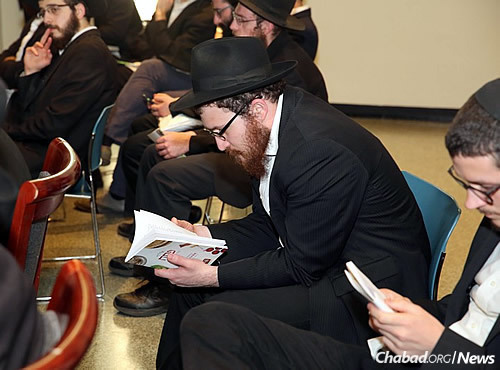
Instead of being held in a tent behind the Chabad House, this year the service and meal are taking place in an art gallery on campus. It will be nice, notes the rabbi, “that there will be art on the walls. It’s a really modern space.”
Explains Elkan: “We try to do everything we can to be a homey environment. We know students come from all different kinds of backgrounds and their seders are all different, so we try and incorporate songs they know from home and to bring in some of their customs from home.”
The emissaries’ own children—ages 1, 3, 4, 6 and 9—are very much a part of the seders, he says, sharing songs from school. “It really feels like you’re sitting around with your family, and people tend to stick around late into the night. It’s really a fun time.”
At a time when the college has made headlines for anti-Semitism on campus, says the rabbi, the seder has become even more meaningful: “People have been signing up well in advance to take part. There is a ‘coming together’ for the holiday, which is a special time, supporting each other and being a family. I think people are really looking forward to that opportunity because so many have been divided all semester.”
The underlying theme of Passover is overcoming personal challenges, he says. “And there have certainly been a lot of challenges this year. The way we come through that is one of the themes of Passover—a little bit of what matzah represents, having a little bit of humility.”
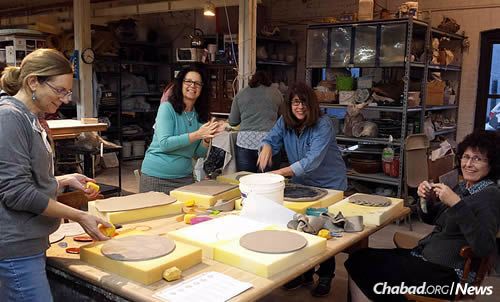
‘The Idea of Being Free’
In Orlando, Fla., which sees thousands of Jewish tourists over the eight-day holiday of Passover, Rabbi Yosef and Chani Konikov of Chabad of South Orlando will host hundreds at two simultaneous community seders run in both Hebrew and English.
The Konikovs, too, have seen their share of news recently, with the safe return of two teenage girls who got lost in a Florida swamp during a school Shabbaton.
Meanwhile, in Mexico, Rabbi Mendel and Rachel Druk, co-directors of Chabad Jewish Center of Cancun, are expecting some 400 guests, a mix of local residents and tourists. In nearby Playa del Carmen, Rabbi Mendel and Chaya Goldberg, who run the Chabad Lubavitch Jewish Center there, will welcome about 350 people for a community seder.
All the way over in Southeast Asia, Chabad-Lubavitch in Thailand will again draw huge crowds, with two seders in the city of Bangkok expected to attract some 1,400 attendees, and seders in other parts of the country looking forward to another 2,000 people.
Big or small, it’s really about having a warm place to be for the holiday, emphasizes Rabbi Pinchus Ciment, co-director of Lubavitch of Arkansas in Little Rock with his wife, Esther Hadassah.
They are hosting two seders—one at the Chabad House with about 40 guests and a second one with a group of 25. Included are guests from a nearby air-force base who find themselves far from family and students from nearby colleges, as well as people passing through. “They know that if they want to join a seder, they can come to Chabad,” says the rabbi.

Preparations have been underway for weeks, with pre-ordering food from outside the state a large part of the process. He notes the relatively newer development of local food stores bringing in more kosher items every year, as the demand continues to rise. “It’s not so far-fetched anymore to get kosher-for-Passover dairy ingredients, even in Little Rock, in the supermarkets,” he says. “There are more and more people becoming aware of it, and it’s becoming more requested, so the cycle of ongoing positive awareness increases by itself.”
His wife and a team of community members have been busily cooking for the seders, which can last well past midnight and into the wee hours of the morning. “They know coming into it that it might be long, but it’s something people enjoy,” he says.
Ciment adds that he hopes people come away with the flavor of the holiday and so much more—“that they’re able to experience the idea of being free, to experience Judaism wherever they may be in their life.”
Added Momentum: The Hakhel Year
Rabbi Moshe Laufer, co-director of the Chabad House of Barrington-Newport in Rhode Island with his wife, Mirel, starts delivering boxes of shmurah matzah to community members about two weeks ahead of the holiday for use at their seders. More than 300 households will receive matzah as part of what has become an 11-year-old family tradition.
The Chabad emissaries also ran Passover-related programming that included a pottery event for women and girls, where they shaped, painted and glazed their own seder plates. And they had pre-Passover classes where participants could review the history and customs of the holiday, and find answer to questions related to the seders or anything else.
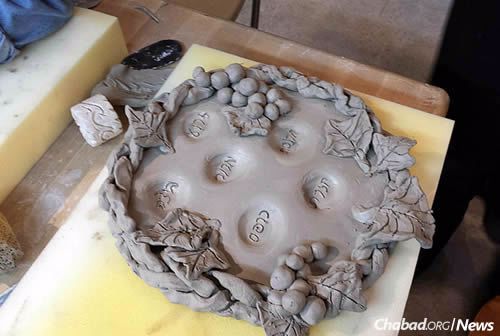
The Laufers are expecting 25 to 30 guests at each of two community seders held at their Chabad House. And it’s extra special because it’s a Hakhel year, notes the rabbi. “Our events and activities in the community have been given a jolt of enthusiasm because of it being a Hakhel year,” he says. “So there’s added momentum around this holiday that’s definitely in the air.”
The Hakhel year, which comes once every seven years following the Shemittah year, puts an even greater focus on Jewish unity. In Hakhel years past, the Lubavitcher Rebbe—Rabbi Menachem M. Schneerson, of righteous memory—would urge Jews worldwide to assemble, and inspire one another to increase in Torah observance and study.
In Rhode Island, the small Jewish community lends itself to a true family seder feel, he says, with “everyone getting a chance both to read from the Haggadah in the language they’re most familiar with and share insights around the table.”
The guests are a mix of regulars and those who happen to be traveling in the historic Newport area; he hopes the seder is a learning experience for all who attend.
Some people, he attests, have become more aware of their Yiddishkeit and observance directly from participating in Chabad-run seders: “They’ve had an eye-opening experience that’s not just about charoset and matzah and wine, but about the whole process of celebrating the freedom of the Jewish people.”
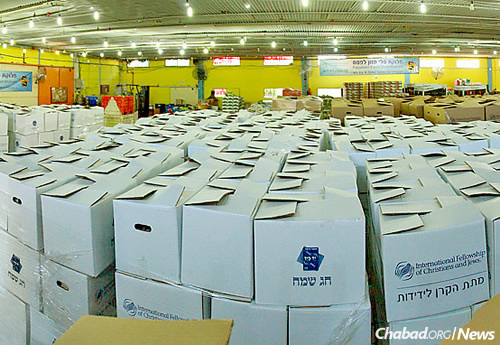

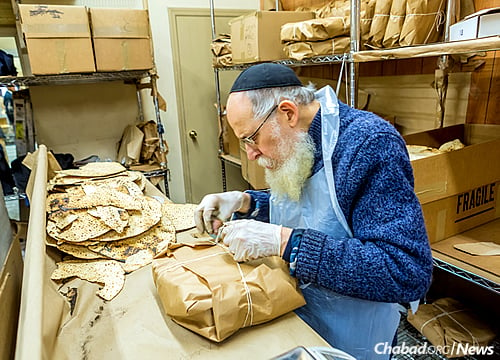






Start a Discussion